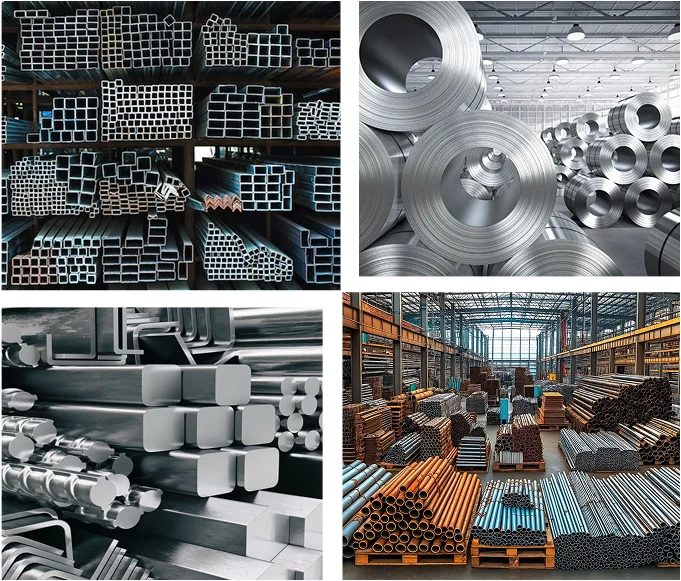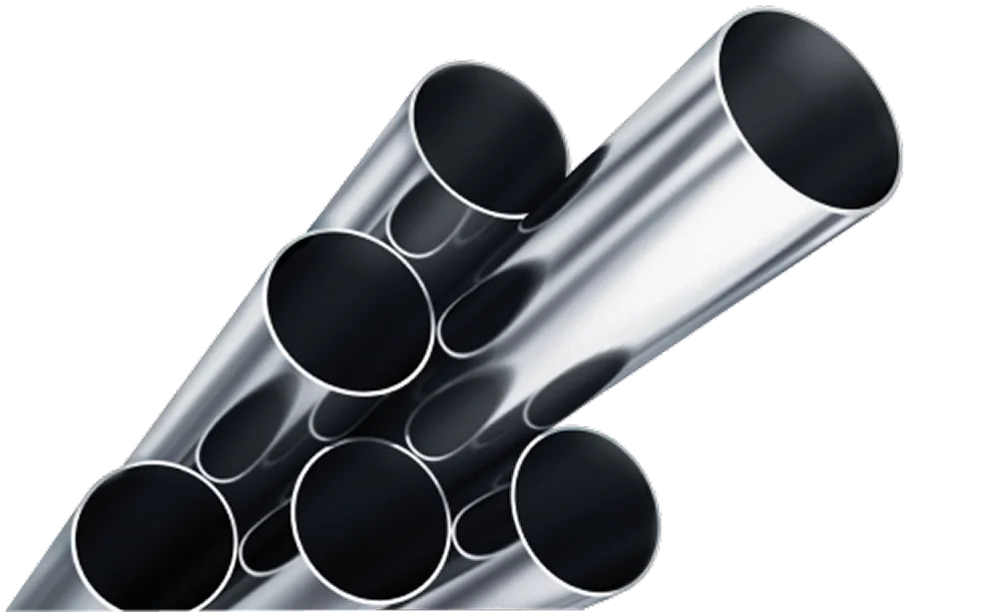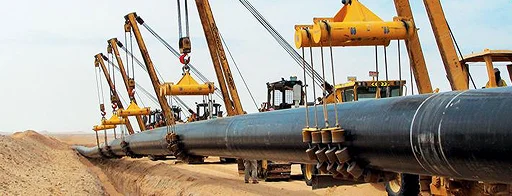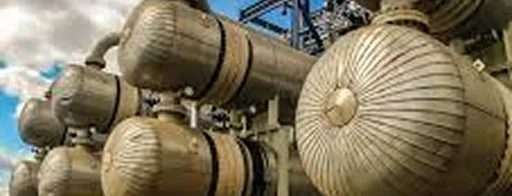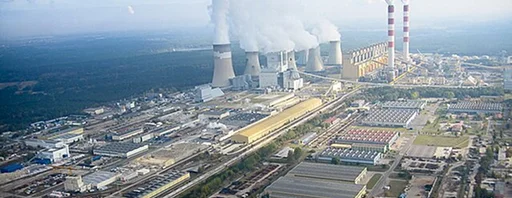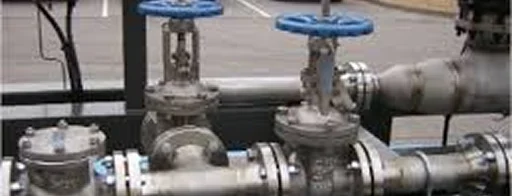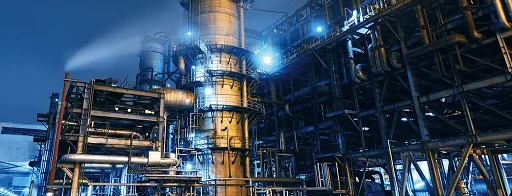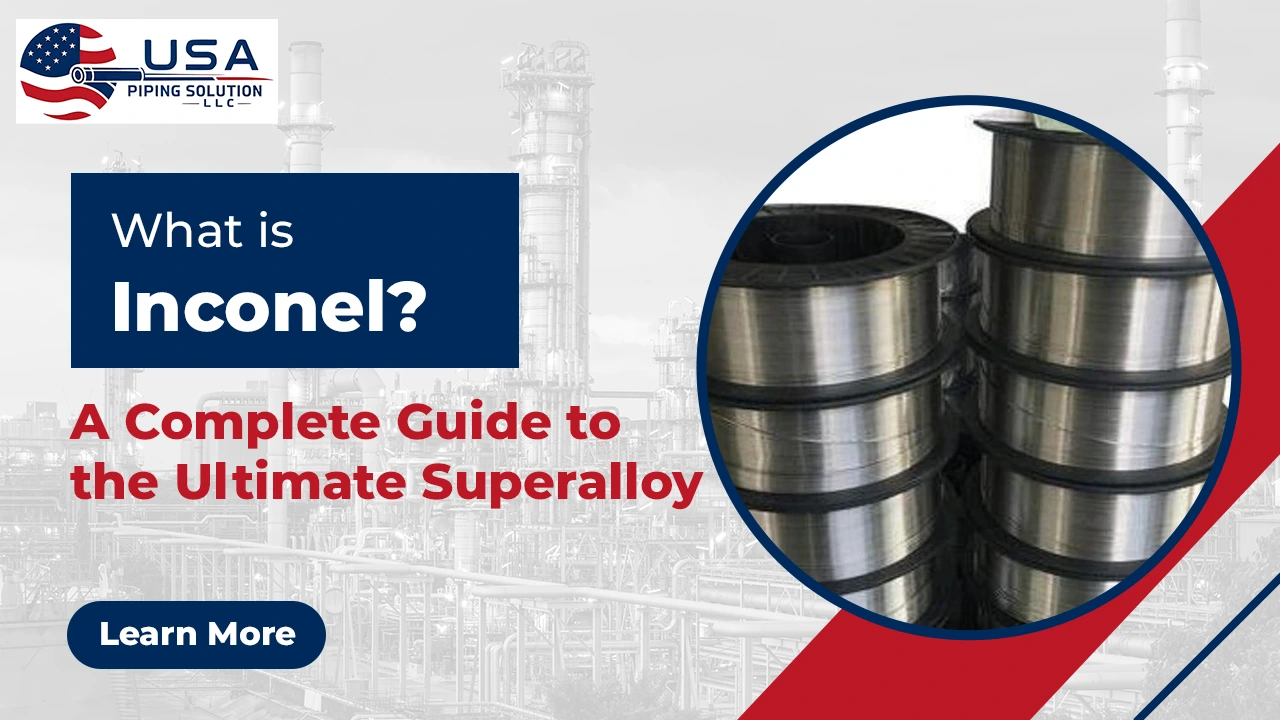
Very few high-temperature metals engender the trust that Inconel does. For engineers and managers working in aerospace, power generation, and the countless industries that demand their materials operate under extreme conditions, the choice will often be to work with Inconel instead of some conventional metal where failure is simply not an option. Why Inconel? Being a nickel-based superalloy, Inconel is well known to retain strength and resist damage when temps and environments become overwhelming to standard steels.
This blog provides you with a thorough introduction to Inconel metal - what it is, its distinctive properties, the family of Inconel alloys (including uses), and why it is defined as the superalloy of superalloys.
What is Inconel?
Inconel is the name trademarked to refer to a family of high-performance alloys that are primarily nickel and chromium (with some of them containing iron). Simply put, Inconel metal is a nickel alloy developed specifically to produce a "super" metal with superior qualities. These alloys were first designed in the mid-20th century and have become an "go to" material for extreme cases. Increasingly use nickel and chromium (and often small amounts of molybdenum, niobium, aluminum, titanium, etc.), metallurgists devised an entire class of alloys which could resist severe heat, corrosive chemicals, or high stress whereas pure metals or conventional alloys would fail.
Key Properties of Inconel Alloys
Inconel alloys are valued for a number of properties that make them "super" relative to normal metals. The primary differences that distinguish Inconel's contracts from normal metals and alloys are:
- High‑temperature performance: Inconel remains stable above 700°C. For example, Inconel 718 holds strength up to around 650–700°C (not 1000°C as sometimes overstated), making it reliable for turbine sections and furnace components.10 → long‑term use above this range requires careful design or alternative superalloys.
- Resistance to corrosion & oxidation: The nickel-chromium chemistry of Inconel alloys forms tight, self-healing oxide layers. Unlike other metals, including stainless steels, Inconel resists acids, salts, and hot gases while retaining protection at red heat, making it ideal for fume hoods, heat-treating equipment, and furnace exhaust pipes.
- Strength under high temperature: As a nickel-based superalloy, Inconel maintains high tensile and creep strength at temperature, carrying loads in turbine rotor assemblies and nuclear reactor service without deformation.
- Good fabricability and weldability: Most Inconel alloys can be TIG-welded with matching filler and formed into complex components (e.g., Inconel pipes or tubes, seamless and welded). Machining is feasible with care due to the alloy’s hardness and strength; allow adequate stock.
Types of Inconel Alloys & Their Uses
The Inconel family includes numerous alloy grades, each optimized for certain properties. Let’s look at some of the most common Inconel alloys and their typical applications:
- Inconel 600: Nickel-chromium Inconel metal/nickel alloy with broad heat/corrosion resistance. Used in heat exchangers, furnace components, and chemical equipment, classic high-temperature metals service within Inconel alloys.
- Inconel 601: An Inconel alloy with added aluminum for stronger high-temp oxidation/carburization resistance. Common in power generation, gas turbines, and hot automotive manifolds which is reliable nickel-based superalloys performance.
- Inconel 625: Versatile nickel alloy combining high strength and corrosion resistance. Go-to for marine and chemical processing (offshore piping, valves, subsea tools) and aerospace exhaust hardware, flagship Inconel 625 application set.
- Inconel 690: High-chromium Inconel grade for hot, corrosive media and steam. Favored for nuclear steam-generator tubing and systems exposed to chlorides which is durable Inconel 690 in demanding environments.
- Inconel 718: Precipitation-hardened nickel superalloy with very high strength to ~650 °C. The aerospace workhorse in jet engines, turbine parts, fasteners, and downhole tools, signature Inconel 718 use cases.
- Inconel X-750: High-strength Inconel up to ~980 °C with excellent oxidation resistance. Ideal for springs, fasteners, and aircraft turbines where relaxation resistance matters, proven Inconel X-750 in high-temperature metals service.
Inconel Pipes & Tubes: Seamless & Welded Options
When specifying Inconel for industrial systems, pipes and tubes are a common form factor. Inconel pipes & tubes are used to transport fluids or gases in extreme conditions (e.g. hot chemicals, steam, exhaust) or to serve as structural elements in high-temperature equipment. USA Piping Solution, for example, offers Inconel pipes and tubes in various grades (Inconel 600, 601, 625, 718, 800, 825, etc.), and in both seamless and welded constructions.
What’s the difference?
|
Feature |
Seamless Inconel Pipes & Tubes |
Welded Inconel Pipes & Tubes |
|---|---|---|
|
Construction |
Extruded/pierced from a solid billet of Inconel alloy (no seam). |
Rolled sheet/strip of Inconel metal formed into a tube, then seam-welded. |
|
Strength Profile |
Uniform strength around the full circumference; no weld = one less potential weak point. |
High-quality modern welds perform well, but seam is a distinct feature. |
|
Best For |
Critical service: high-pressure systems, nuclear and aerospace applications, severe cyclic heating. |
General service where very high pressure isn’t primary; standard sizes for heat exchangers and process piping. |
|
Advantages |
Excellent integrity under extreme stress and thermal cycling; superior reliability. |
Often lower cost; easier to produce larger diameters and longer lengths; wide availability. |
|
Considerations |
Higher cost; tighter availability in large sizes/long lengths. |
Weld seam may be a design consideration in ultra-critical duty. |
|
Sizes/Lengths |
Typically more limited vs. welded for very large OD/long lengths. |
Readily made in larger diameters and longer continuous lengths. |
|
Cost |
Generally higher due to process and billet quality. |
Typically lower than seamless for comparable sizes. |
Both options retain the inherent corrosion and high-temperature performance of Inconel pipes & tubes; selection depends on pressure rating, size/length needs, and budget.
For engineers and procurement managers looking to source these, here are some of the Inconel pipe & tube products available:
- Inconel 600 Pipes & Tubes: Seamless and welded pipes/tubes in Alloy 600 for furnace lines, chemical plant piping, etc.
- Inconel 625 Pipes & Tubes: Pipes/tubes in Alloy 625, often used in marine and offshore installations, chemical processing lines, and high-performance exhaust systems.
- Inconel 800 Pipes & Tubes: Pipes/tubes in Alloy 800 (sometimes called Incoloy 800), used for heat-treat equipment, petrochemical furnace tubes, and power plant piping due to its strength in high-heat, corrosive environments.
- Inconel 825 Pipes & Tubes: Pipes/tubes in Alloy 825, ideal for acid processing, oil & gas pipelines (sour gas service), and pollution control equipment thanks to its broad corrosion resistance (effective against sulfuric and phosphoric acids, among others).
Inconel vs Stainless Steel
Engineers often compare Inconel with high-grade stainless steel, since both are used for corrosion-resistant applications. However, these materials have important differences in composition, performance, and use-cases. The table below provides a brief comparison of Inconel (a nickel-based superalloy) versus stainless steel (an iron-based alloy):
|
Property |
Inconel (Nickel-Based Superalloy) |
Stainless Steel |
|---|---|---|
|
Composition |
Nickel alloy (≈50–72% Ni) with Cr and Fe; nickel-rich chemistry forms a stable, protective oxide in extreme conditions. |
Primarily iron (≈60–70%) with ≥~18% Cr and ~8–12% Ni; chromium provides basic corrosion resistance. |
|
High-Temperature Performance |
Retains strength and creep resistance to ~800–1000 °C (grade-dependent); e.g., Inconel 718 remains strong well above 650 °C. |
Strength drops above ~600 °C; even heat-resistant grades degrade rapidly >~650 °C. |
|
Corrosion Resistance |
Excellent in harsh, hot environments (acids, seawater, oxidative gases); maintains a protective oxide at red heat. |
Good at ambient conditions; susceptible to chlorides (pitting/SCC) and scaling at high temperatures. |
|
Cost |
Higher—used where performance justifies premium material. |
Lower—common for general-purpose service. |
|
Fabrication |
Tough to machine/form; weldable with care (often matching Inconel filler). |
Easier to fabricate and weld; suitable for mass production. |
Common Industries Using Inconel
Many sectors rely on Inconel when standard materials can’t cope. Here are some of the common industries and applications where Inconel alloys are indispensable:
- Aerospace: Inconel 718 for turbine disks/rotors; Inconel X-750 for springs/bolts. Chosen for high strength at temperature, thermal-cycle durability, classic high-temperature metals use.
- Power Generation: Inconel 600 and Inconel 690 in steam-generator tubing, heat exchangers, superheaters, boiler tubes, and turbine blades. Stable under long-term heat and corrosive steam.
- Oil & Gas: Inconel 718 in downhole tools/safety valves; Inconel 625 and Inconel 825 for pipelines, valves, and heat exchangers. Resist H₂S/CO₂/chlorides and acid media; nickel superalloy reliability minimizes downtime.
- Marine Engineering: Inconel 625 for seawater exhaust systems and fittings; Inconel 690 for pollution-control and ship boilers. Nickel alloy durability against saltwater and stress.
- Chemical & Petrochemical: Reactors, piping, and heat exchangers use Inconel 825 (sulfuric service), Inconel 600/625 (fertilizer, sour-gas, furnaces). Handles oxidizing/reducing chemicals better than stainless.
- Automotive & Motorsports: Turbo rotors, exhaust manifolds, valves, and springs use Inconel for sustained heat. Premium makers deploy Inconel exhaust; historic automotive gas-turbine parts also used these nickel-based superalloys.
In each of these industries, the common theme is that Inconel alloys enable reliable operation in conditions that involve a combination of heat, corrosion, and stress. By choosing the appropriate Inconel grade for the job, engineers ensure that critical components in these sectors remain safe and perform as intended over long service lifetimes.
Advantages & Disadvantages of Inconel
Like any engineering material, Inconel comes with its set of pros and cons. Understanding these helps in deciding if this nickel alloy is the right choice for a given application.
Advantages of Inconel
- Extreme-environment performance: Inconel metal, a nickel superalloy in the family of nickel-based superalloys, keeps high strength and creep resistance in high-temperature metals service while resisting oxidation and corrosion.
- Longevity & durability: Inconel alloys (e.g., Inconel 625, Inconel 718, Inconel X-750) outlast common materials; Inconel pipes & tubes withstand repeated thermal cycles, cutting maintenance.
- Versatility across applications: Broad grade set, Inconel 600, Inconel 601, Inconel 625, Inconel 690, Inconel 718, Inconel X-750 and forms (seamless/welded nickel alloy pipe, plate, bar, wire) to match specific chemical, temperature, and mechanical needs.
- Self-healing oxide film: Chromium/aluminum-rich layer renews, protecting in hot, corrosive environments typical for nickel-based superalloys.
Disadvantages of Inconel
- High material cost: Premium nickel alloy content and processing make Inconel pricier than carbon or stainless options.
- Manufacturing challenges: Tough to machine/form; welding needs strict procedures (often Inconel 625 filler for dissimilar Inconel alloys).
- Density (weight): Similar to stainless; when weight is critical, lighter alternatives may be chosen over Inconel despite its nickel superalloy strength.
How to Choose the Right Inconel Superalloy
Selecting the best Inconel alloy for your needs involves evaluating several aspects of your project:
Temperature Requirements
Set your alloy to the max service temperature. Around 700 °C → Inconel 718 is a strong candidate. For continuous 800–1000 °C, consider Inconel X-750 or heat-resistant Incoloy variants. Always pick a nickel-based superalloy with a comfortable safety margin above your maximum.
Corrosive Environment
Match the chemistry to the medium. Seawater/chlorides → Inconel 625 or Inconel 690 for chloride resistance. Strong acids (sulfuric/phosphoric) → Inconel 825. High-temperature oxidation (furnaces/combustion gases) → Inconel 601 with its aluminum addition. Align the alloy’s corrosion profile to extend service life.
Mechanical Strength & Fabrication Needs
Define loads (tensile, pressure, fatigue) and how you’ll make the part. Precipitation-hardened Inconel 718 delivers very high strength for turbine shafts or downhole tools. If you need easier welding/forming, choose solution-annealed Inconel 600 or Inconel 625. Confirm availability in the required forms like plate, bar, or Inconel pipes & tubes (seamless or welded) and any post-fabrication heat treatment.
Compliance and Specifications
In regulated sectors (aerospace, nuclear, medical), ensure the Inconel alloy meets code. Verify ASTM/ASME and UNS designations, for example, ASTM B444 for Inconel 625 pipe and any ASME pressure-vessel requirements.
Cost vs. Performance Trade-off
Use Inconel/nickel alloy where heat and corrosion are most severe; use stainless steel in cooler or less aggressive zones. Mixing materials (e.g., stainless for ambient lines, Inconel pipes in hot sections) often provides the best balance of budget and reliability among high-temperature metals.
If in doubt, it’s wise to consult with materials experts or the alloy supplier. Suppliers such as USA Piping Solution have experience with these nickel alloys and can assist engineers in selecting the right nickel-based superalloy for a given application. The goal is to choose an Inconel grade that not only meets the technical demands but also does so cost-effectively and safely.
Conclusion
Inconel certainly lives up to the billing as the number-one superalloy. As a nickel-chromium, nickel-based superalloy, it provides a rare balance of heat resistance, corrosion resistance, and mechanical strength compared to ordinary metals, and prevents degradation in high-stress environments. The extreme environments include everything from 30,000 feet in the air on jet engines, to submerged in an oil well, where in some cases the systems are still working reliably after months of being in operation. Engineers and procurement managers have the peace of mind that when they are buying Inconel alloys, they can expect the component or system to survive.
At USA Piping Solution, we stock all major grades of Inconel pipes and tubes, seamless and welded to help our customers with demanding project specifications. Review our Inconel product sections and realize our expertise in high-performance nickel alloys. Inconel is expensive, but the returns from the performance are priceless!
